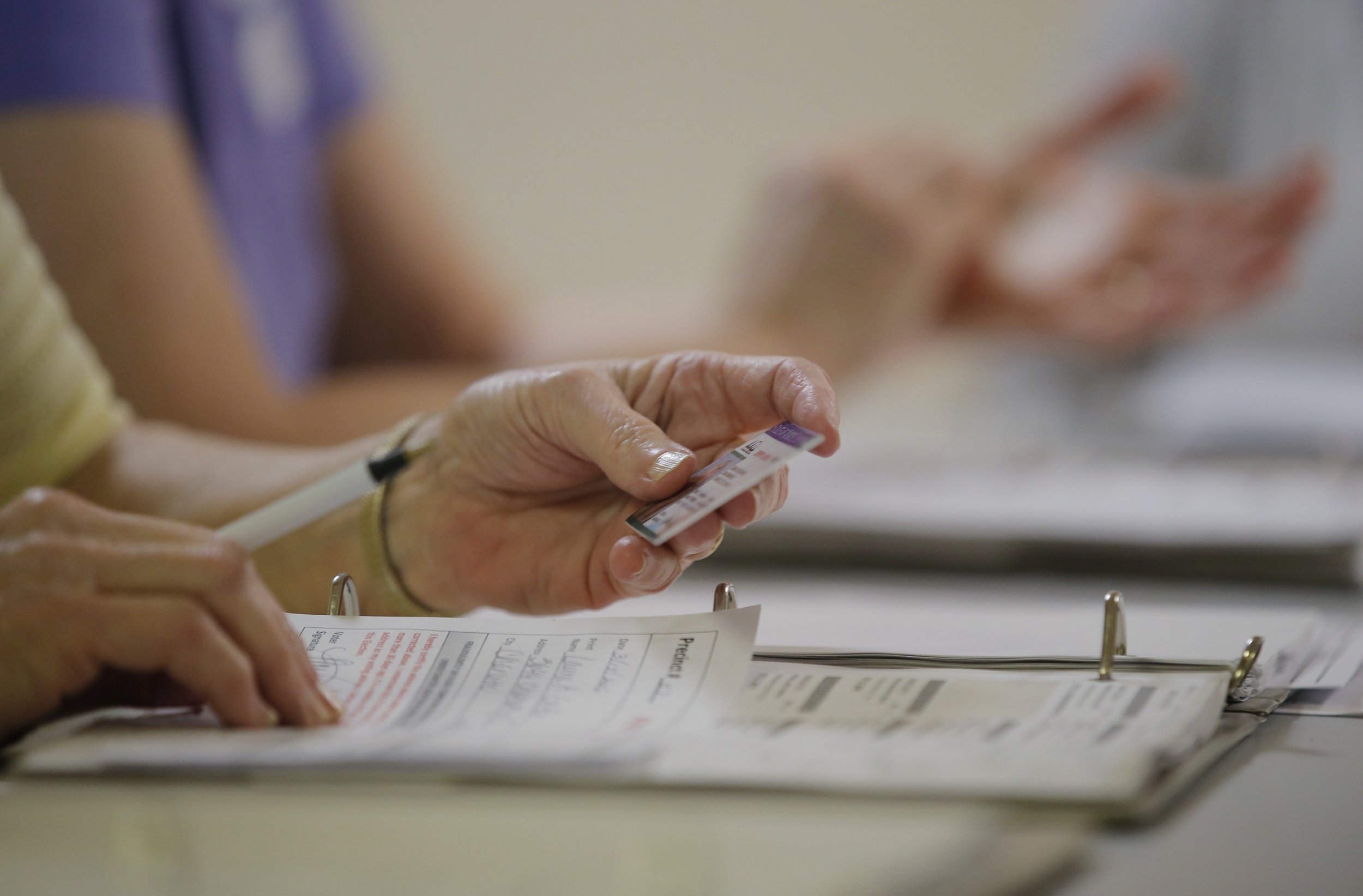
Two federal rulings issued this week strike at the core of states' voter identification laws, judging at least two states' efforts to allegedly combat voter fraud were thinly veiled attempts to disenfranchise the poor and minorities.
The rulings finding North Carolina and Wisconsin's voter ID programs largely unconstitutional employed often blistering language that endorses the criticisms often levied against such legislative efforts—they're a Republican attempt to suppress voters inclined to vote Democratic. In a stinging rebuke, the North Carolina ruling went beyond finding that its provisions merely disenfranchised voters, opining that the effort was the legislature's deliberate intent in a state that had been largely subject to federal oversight under Voting Rights Act provisions that have since been struck down by the U.S. Supreme Court.
The 83-page decision by the U.S. Court of Appeals for the Fourth Circuit scrapped North Carolina's requirement of voters to present photo ID at polls, restored early voting and reinstated voters' ability to register on election day in overturning a 2013 District Court decision that upheld North Carolina's restrictive voting practices. In Wisconsin, the federal District Court ordered the state to make photo IDs more available to voters and to expand the ID options that would be acceptable at the polls, while also scrapping provisions that limited absentee ballot access.
The Fourth Circuit ruled that North Carolina's law targeted "African Americans with almost surgical precision" by using data on the most common forms of ID by different races "to exclude many of the alternative photo IDs used by African Americans. The bill retained only the kinds of IDs that white North Carolinians were more likely to possess.
"In many ways, the challenged provisions in (the North Carolina law) constitute solutions in search of a problem," the Fourth Circuit ruling states. "The only clear factor linking these various 'reforms' is their impact on African American voters. The record thus makes obvious that the 'problem' the majority in the General Assembly sought to remedy was emerging support for the minority party. Identifying and restricting the ways African Americans vote was an easy and effective way to do so."
The District Court in Wisconsin held similar views about the legislature's efforts. "The evidence in this case casts doubt on the notion that voter ID laws foster integrity and confidence," the ruling states, according to the New York Times. "The Wisconsin experience demonstrates that a preoccupation with mostly phantom election fraud leads to real incidents of disenfranchisement which undermine rather than enhance confidence in elections.''
Voting rights proponents hailed the North Carolina decision. "We applaud the appeals court for recognizing the discriminatory intent behind and effect wrought by the 2013 monster law. Because of this ruling, North Carolinians will now be able to register and vote free of the obstacles created by the Legislature in 2013," said Southern Coalition for Social Justice Senior Attorney Allison Riggs. North Carolina had "contradicted some of the most basic principles of our democracy," Attorney General Loretta Lynch said. "I am pleased that the Court of Appeals for the Fourth Circuit has struck down a law that the court described in its ruling as 'one of the largest restrictions of the franchise in modern North Carolina history.' As the court found, this law was passed with discriminatory intent. The ability of Americans to have a voice in the direction of their country—to have a fair and free opportunity to help write the story of this nation—is fundamental to who we are and who we aspire to be. Going forward, the Department of Justice will continue our work to protect that sacred right for all."
North Carolina's Republican governor, Pat McCrory, vowed to appeal the ruling. "Photo IDs are required to purchase Sudafed, cash a check, board an airplane or enter a federal courtroom. Yet three Democratic judges are undermining the integrity of our elections while also maligning our state."
The wave of rulings, including an appeals court decision earlier this month that found a Texas voter ID law is discriminatory, are a sharp condemnation of efforts in recent years to combat a problem that experts say largely doesn't even exist. Academic studies find almost no instances of the type of voter fraud that Republican legislatures are ostensibly trying to prevent—in-person deception. One Arizona State University project studied 2,068 alleged fraud cases from 2000 to 2012 and found only 10 actual cases of alleged voter impersonation. "While fraud has occurred, the rate is infinitesimal, and in-person voter impersonation on Election Day, which prompted 37 state legislatures to enact or consider tough voter ID laws, is virtually non-existent," they wrote.
Uncommon Knowledge
Newsweek is committed to challenging conventional wisdom and finding connections in the search for common ground.
Newsweek is committed to challenging conventional wisdom and finding connections in the search for common ground.
About the writer
To read how Newsweek uses AI as a newsroom tool, Click here.








